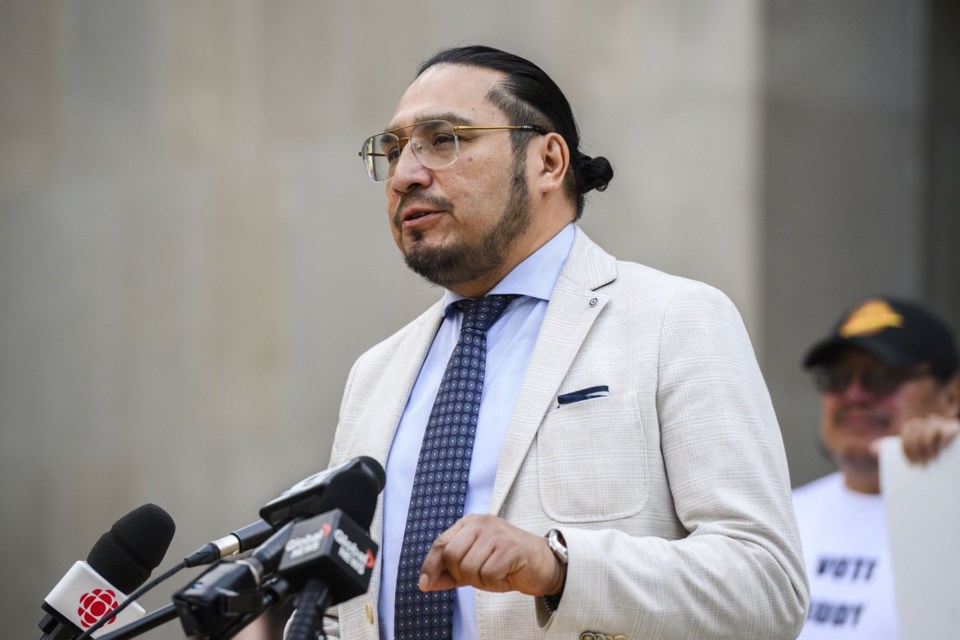TORONTO — Ontario's only First Nation representative at Queen's Park will table a bill Thursday to declare the National Day for Truth and Reconciliation a statutory holiday in the province.
The proposed Day of Reflection on Indian Residential Schools on Sept. 30 would make Ontario a better place, said Sol Mamakwa, the New Democrat deputy leader.
"Ontario needs to reckon with the truth," he said.
"That is why it is so important to have this day for families and loved ones to spend time together, to learn and reflect, attend community events and find ways towards reconciliation in every corner of the province."
Mamakwa is a residential school survivor who has spoken about the horrors he and his friends experienced there.
The day is a federal statutory holiday and several other provinces and territories have also made it one. Numerous unions across Ontario, including the one that represents Ontario's public service workers, have successfully negotiated the day as a holiday in their collective agreements.
The day recognizes the abuse suffered by Inuit, First Nations and Métis people at more than one hundred state- and church-run residential schools across the country.
The Catholic and Anglican churches, in concert with the federal government, ripped about 150,000 Indigenous children from their families and forced them to live at schools where their languages were verboten in favour of English.
At least 3,200 children died at residential schools, the Truth and Reconciliation Commission of Canada found, but former Commissioner Murray Sinclair believed about 15,000 children never made it home.
Numerous Indigenous organizations across the province have pledged support for the holiday.
"I think the one moment of time that we can all get together as Ontarians and Canadians on the one day to remember our history -- and some of our history is painful history and some of us have gone through horrific times," said Elder Darrell Boissoneau of Garden River First Nation near Sault Ste. Marie, Ont.
"But it's a time of reflection and also where we remember that we're resilient people that we've made it through and that the attempts of colonization and assimilation to erase us from this sacred part of Mother Earth is going to stop and I think this would be a proud moment for Ontarians."
The Chiefs of Ontario are supportive of a statutory holiday.
"Everyone shares the responsibility to engage in reconciliation, which starts with knowing the truth," said Abram Benedict, Ontario Regional Chief, in a letter to the province.
"Non-Indigenous Ontarians should have the day off to dedicate time toward learning about and reflecting on Canada's colonial history of assimilationist policies."
Mamakwa also has the backing of Anishinabek Nation, which represents 39 First Nations in Ontario.
"We strongly encourage all Ontario Members of Provincial Parliament to approve this bill to ensure that by September of 2025, all Ontarians will be able to honour the Day of Reflection in their preferred way, without having to request a day off from non-government employers," said Grand Council Chief Linda Debassige in a letter to politicians.
Indigenous Affairs Minister Greg Rickford will address the bill Thursday night at Queen's Park.
This report by The Canadian Press was first published Nov. 28, 2024.
Liam Casey, The Canadian Press



